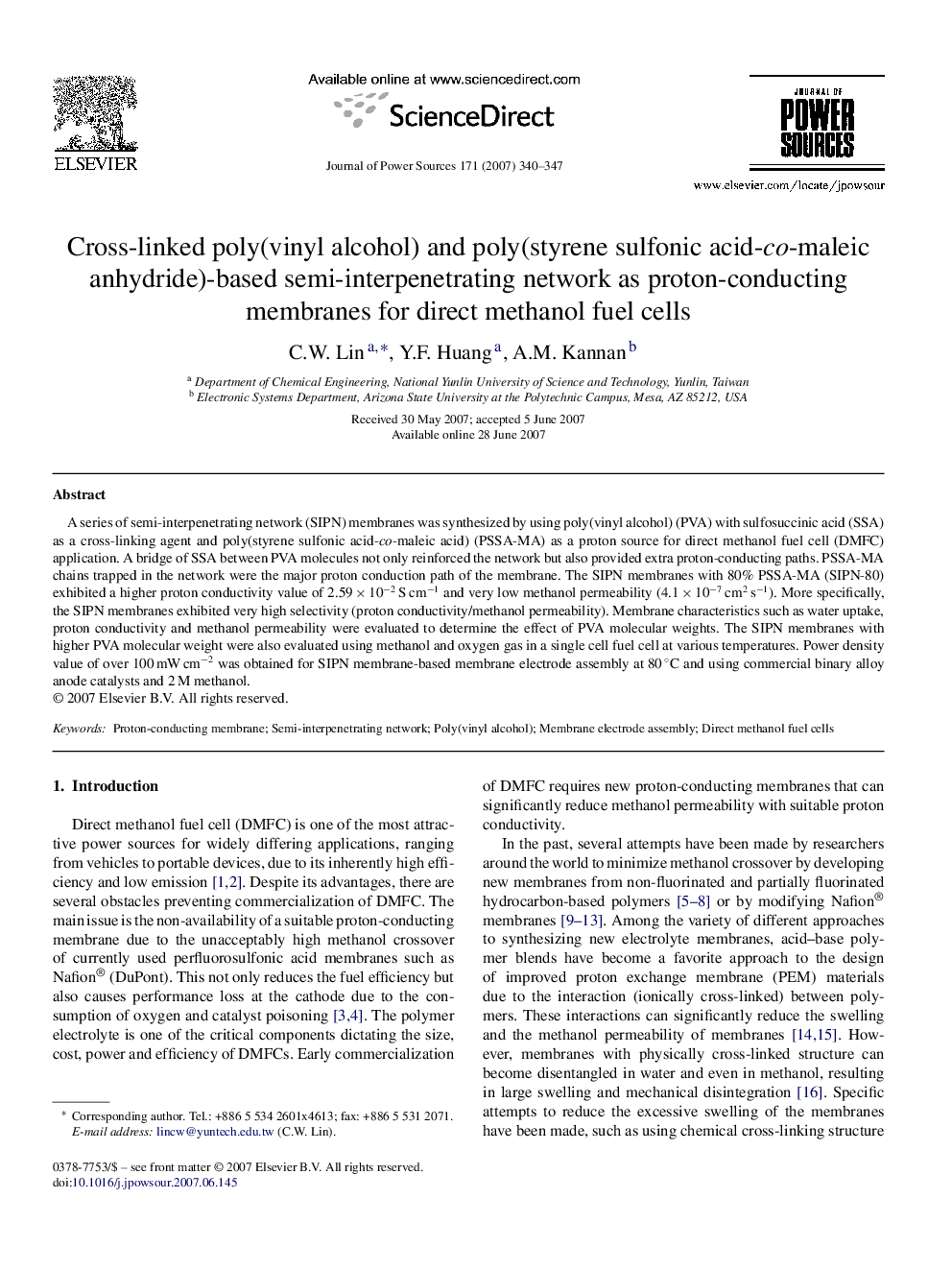| Article ID | Journal | Published Year | Pages | File Type |
|---|---|---|---|---|
| 1286338 | Journal of Power Sources | 2007 | 8 Pages |
A series of semi-interpenetrating network (SIPN) membranes was synthesized by using poly(vinyl alcohol) (PVA) with sulfosuccinic acid (SSA) as a cross-linking agent and poly(styrene sulfonic acid-co-maleic acid) (PSSA-MA) as a proton source for direct methanol fuel cell (DMFC) application. A bridge of SSA between PVA molecules not only reinforced the network but also provided extra proton-conducting paths. PSSA-MA chains trapped in the network were the major proton conduction path of the membrane. The SIPN membranes with 80% PSSA-MA (SIPN-80) exhibited a higher proton conductivity value of 2.59 × 10−2 S cm−1 and very low methanol permeability (4.1 × 10−7 cm2 s−1). More specifically, the SIPN membranes exhibited very high selectivity (proton conductivity/methanol permeability). Membrane characteristics such as water uptake, proton conductivity and methanol permeability were evaluated to determine the effect of PVA molecular weights. The SIPN membranes with higher PVA molecular weight were also evaluated using methanol and oxygen gas in a single cell fuel cell at various temperatures. Power density value of over 100 mW cm−2 was obtained for SIPN membrane-based membrane electrode assembly at 80 °C and using commercial binary alloy anode catalysts and 2 M methanol.
